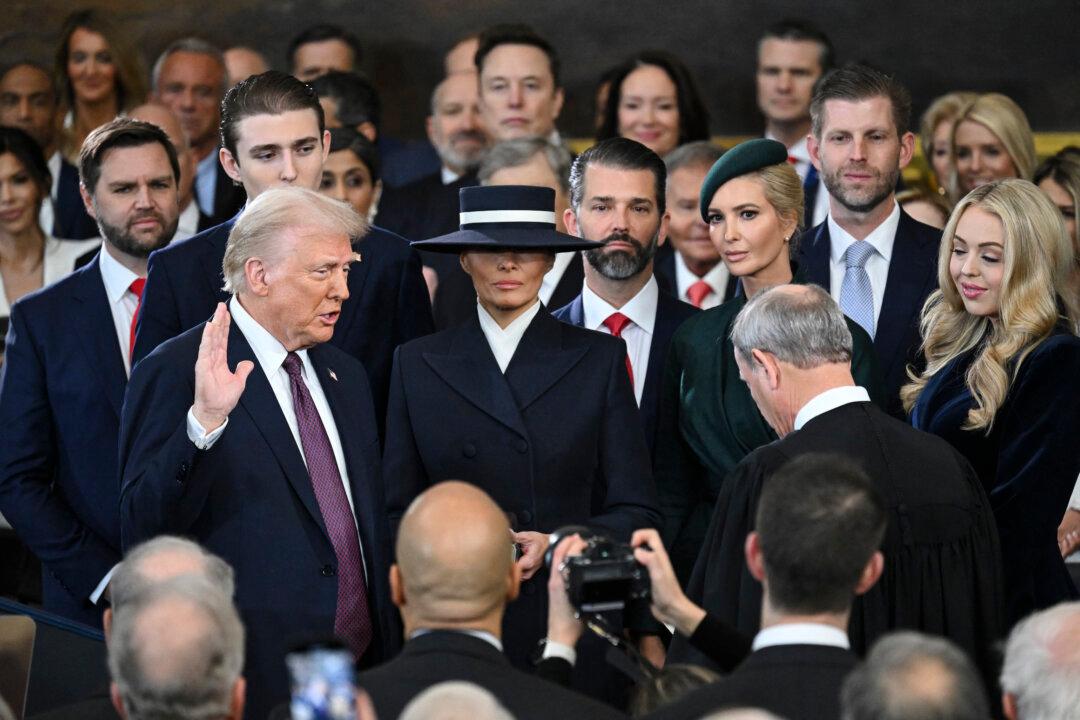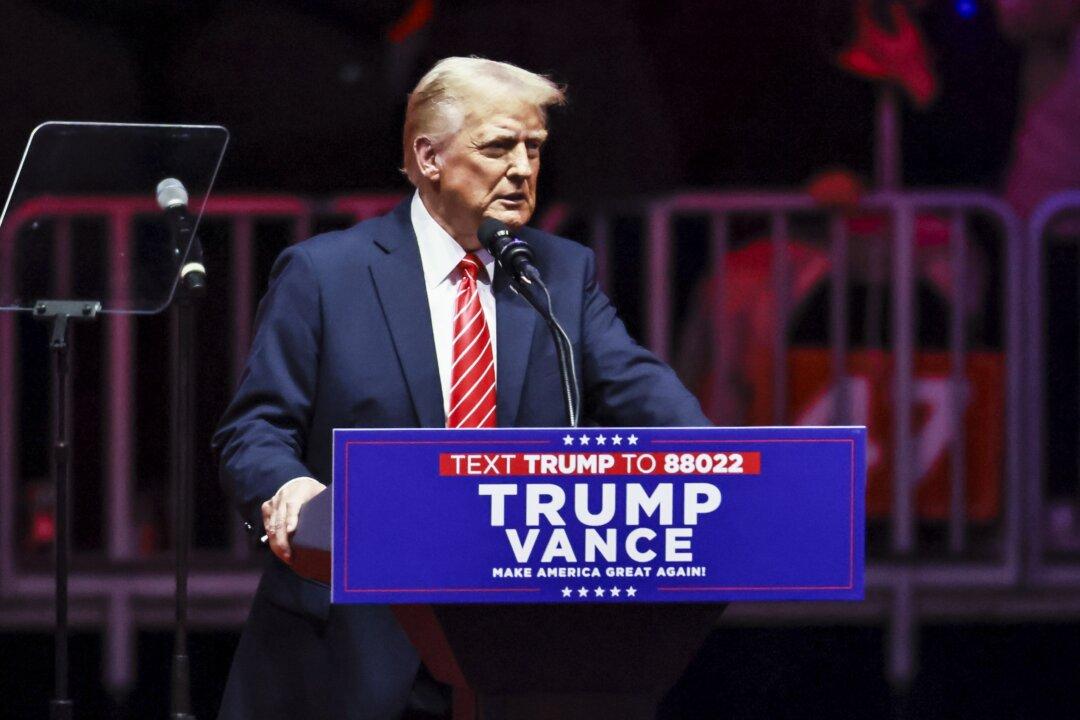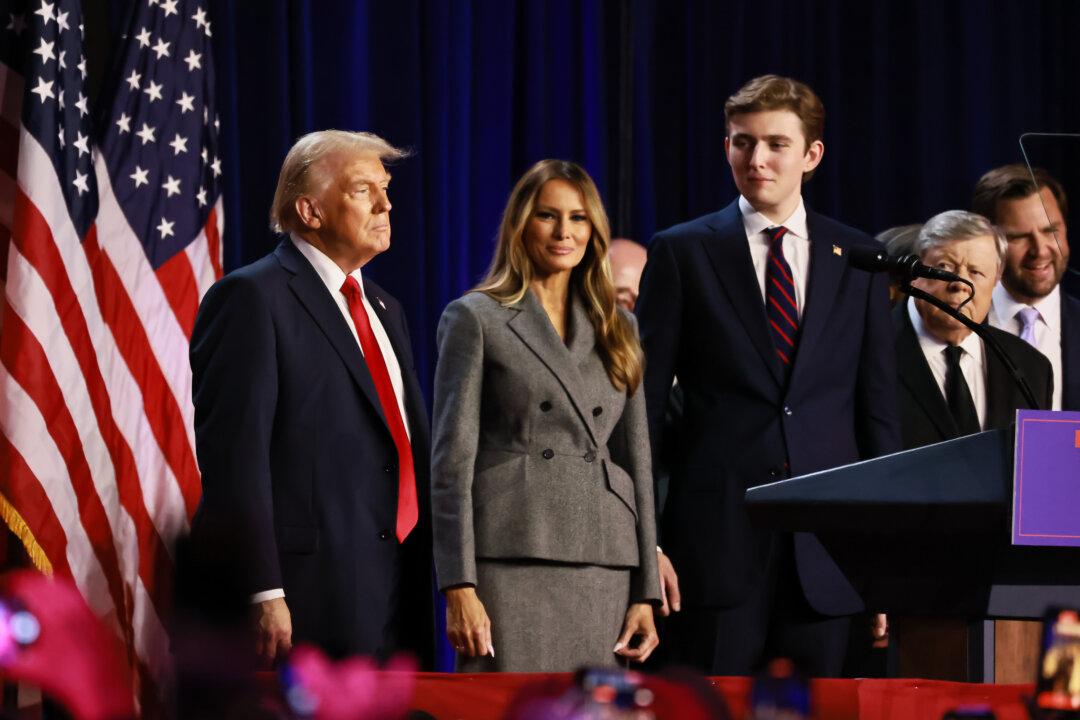The United States on Dec. 10 placed sanctions on three senior officials of North Korea’s communist regime for human rights abuses and censorship. One of the officials, Choe Ryong Hae, is seen by some as North Korea’s second most powerful official in Pyongyang, holding posts at the apex of the communist party, the government, and the military.
Choe is the director of the Organization and Guidance Department, which implements censorship policies and purports to control the political lives of all North Koreans. His second son, Choe Song, reportedly married Kim Yo Jong, the younger sister of North Korean leader Kim Jong Un in 2015.
The Treasury also designated Jong Kyong Thaek, the Minister of State Security, and Pak Kwang Ho, the director of the propaganda and agitation department, for their roles in imposing a brutal censorship regime on the North Korean people.
“These sanctions demonstrate the United States’ ongoing support for freedom of expression, and opposition to endemic censorship and human rights abuses.”
The United States had already sanctioned the departments headed by Choe, Jong, and Pak. The individual sanctions place a freeze on their assets within U.S. jurisdiction and prohibit Americans from transacting with them.
In announcing the sanctions, the Treasury Department pointed to North Korea’s treatment of Otto Warmbier, a U.S. citizen who died shortly after being released from a North Korean prison. Warmbier would have turned 24 on Dec. 12.
Choe’s organization and guidance department monitors “ideological discipline” and conducts party audits. When an official deviates from the party line, the propaganda department sends an operative to conduct a “self-censorship” session, according to the Treasury.
Pak’s propaganda department is responsible for indoctrinating North Koreans, tightly controlling the flow of information, and suppressing free speech. As head propagandist, Pak was charged with “maintaining ideological purity,” which translates to eliminating all belief systems other than communism.
The Treasury accuses Jong of directing censorship activity and the abuses perpetrated by the state security ministry.
All three groups maintain strict censorship within the reclusive Communist regime. For example, government operatives routinely conduct warrantless searches to inspect and seize computer content, including external storage devices. The entities are also known to kidnap defectors or foreigners who advocate for human rights in North Korea.
The Treasury has taken action against more than 500 people over human rights abuse since January 2017.
“The Government of the Democratic People’s Republic of Korea continues to censor the media and commit serious human rights violations and abuses, including violations of individuals’ freedom of expression,” the report, issued by the State Department, states.
“There is no independent domestic media in the country, and all media are strictly censored. No content that deviates from the official government line is tolerated.”
The regime, headed by Kim Jong Un, uses a software-based censorship system which makes it impossible to view foreign media on mobile phones, according to the report. North Koreans are routinely punished for listening to foreign media or producing content critical of the communist regime.
Some are executed. Others face severe punishment for simply owning a television or radio set capable of receiving non-government broadcasts.
The State Department specifically faults three entities, called Group 109, Group 118, and Group 114, for censorship and human rights abuses. Group 109 is notable because it enforced the communist regime’s mandate regarding foreign media and content.
“Only CDs and DVDs bearing a government seal indicating that they have been reviewed and approved may be used,” the report states. “North Koreans caught with illicit entertainment items such as DVDs, CDs, and USBs are at a minimum sent to prison camps and, in extreme cases, may face public execution.”
While it was originally created to combat the trade in illicit drugs, Group 118 now also carries out the regime’s clampdown on foreign media. Members of the group are allowed to conduct random searches of computers and cell phones.
Group 114 is tasked with preventing foreign media from entering North Korea. Agents from this group are reportedly responsible for kidnapping defectors who escape into China as well as South Korean and Chinese citizens who criticize the communist regime in Pyongyang, according to the report.
The State Department names Jong, Choe, and Pak in the report. The report specifically alleges that Jong was involved in the abuses carried out in North Korea’s political prison camp system, “where serious human rights abuses such as torture, deliberate starvation, forced labor, and sexual violence are systematized as a matter of State policy.”





